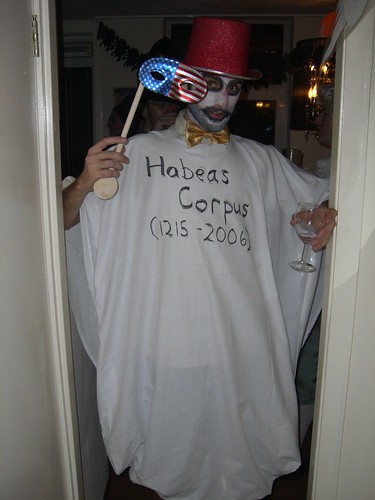On Blogging Conflict Regions- 11.29.06 Global Voices Post
My most recent Global Voices post, with plans to follow this up with a series of posts on life in greater northern Uganda next week.
Ethan Zuckerman, one of the founders of Global Voices, once said in an interview that to care about a far away place that gets little media attention requires empathy. Empathy for a place can come through from having close friends who grew there, or by traveling there yourself. Sometimes, it can just from sharp, informed writing that transports you to another place.
Sometimes, these places are overlooked by the main stream media and by the blogging community for the same reasons. These places are incredibly difficult to cover, not only because of the logistical lack of power and bandwidth, but also because it is difficult to effectively translate such experiences to an average reader whose daily experience is, in many ways, incomparable.
Gulu Town is such a place. Gulu is the portal to a greater northern Uganda that has suffered as much as any region in the world. It is a vast and diverse suffering. For the last twenty years, over one million people throughout the north have lived in miserable Internally Displaced Person's (IDP) camps, fearing the occasional LRA attack and the daily government hostility. Warriors in the deeply troubled northeastern Karamoja region fight one another for cattle using AK-47's and fear occasional government air bombing. In the 1930's, the West Nile Virus was discovered in the region, and in the 1970's, it experienced an Ebola epidemic.
and Yet Gulu Town itself is strangely calm and charming. It is a beautifully laid out town in the British design; it is relaxed and pleasant compared with Kampala. Many people look strong and upbeat, and nearly everyone is endlessly helpful and generous. The LRA attacks have ceased recently, and there is a modicum of hope; perhaps this is the most one can ask for after lifetimes of never ending hostilities. For those who have heard about the tragedy of northern Uganda, there is a strange contradiction after visiting the place. Despite observing the often unspeakable difficulties of life, one often leaves with hope that the actors in the violence are human, even though their actions are not.
We have heard much political commentary about the stalled Juba Peace Talks between the Lord's Resistance Army (LRA) and the Government of Uganda. However, we rarely hear about what life is like for the people that have been affected by the cycle of conflicts that has existed in the North since independence. This is strange, because in the North there is an ongoing joke about how the population is merely extras for foreign videographers filming the humanitarian disaster. While a few documentaries exist on the subject, there is very little online content.
We are lucky this week to have some blog posts about life in the north. I hope that more writers emerge from the greater northern Uganda, and that more Kampala based bloggers travel to the north and record their experiences.
The difference of life in northern Uganda can be seen in simple, everyday experiences. In I've Left Copenhagen for Uganda, Pernille traveled to the north and asks Where Is the Bathroom in an IDP Camp?

 When you live in an IDP camp, on little space, without cash, and without access to materials - you have to be inventive. The things which can be recycled and used for a new purpose is amazing. But remember it is mainly done due to the above reasons.
When you live in an IDP camp, on little space, without cash, and without access to materials - you have to be inventive. The things which can be recycled and used for a new purpose is amazing. But remember it is mainly done due to the above reasons.
The left image is a shower made out of jerry cans cut open. The right image is a 'handwash', where you tip the stick below with your foot in order not to touch the water can with dirty hands coming straight from the pit latrine. Handwashing is taken seriously around here, i.e. due to cholera.
In another post, Pernille travels to Arua, the far north border town with Sudan. She writes:
In Arua peace is a brand, and as one reader put my attention to the other day, now 'peace talk' is slang for chatting up the opposite sex. A good sign, I believe.
There are poets who can take on the voice of the suffering. Chorya, writing in Poems from a Civil War, shows us how fed up and tired those in the north have become:
Enough. Uphold the day’s
baton resolve - and let us marshal
a kindred peace as perennial
as this present overcast.
Sweep under the ignominy;
monument the carnage, if you must,
until shame whisks it away.
And in its wake, revealed,
new secrets and patient
formulas discovered, distilled from
blood-gore.
A time for peace a-brewing...
Labels: east africa, global voices, post-conflict development






 Joshua Goldstein is in search of the best route to bicycle from Kampala to Capetown.
Joshua Goldstein is in search of the best route to bicycle from Kampala to Capetown.